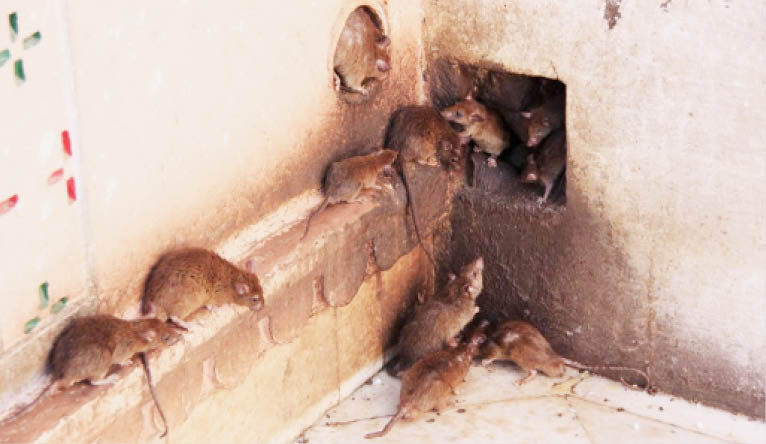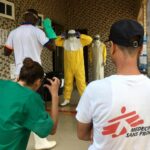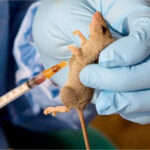Persistent seasonal outbreaks of Lassa fever have continued to ravage Nigeria, 54 years after the highly infectious disease was discovered in the country. It has resulted in the loss of many lives among the general public and health workers.
Lassa fever is a potentially deadly viral hemorrhagic fever that affects many West African countries.
Nigeria reports the largest incidence of the disease in the region. The disease is caused by contact with food or household items contaminated with rodent urine or faeces.
The virus is carried in multimammate rats, the common soft-furred African rat whose female has a double row of breasts.
Sabalenka fires warning shot with Australian Open masterclass
FG to introduce malaria vaccine in 2025 — NPHCDA
They normally live in bushes and visit nearby homes for food, which they contaminate. The virus has an incubation period of 6-21 days.
The Lassa virus may also be spread between humans through direct contact with blood, urine, faeces, or other bodily secretions of a person infected with Lassa fever, laboratory transmission can also occur.
The illness is characterized by sudden onset of fever and general weakness. Other symptoms include headache, sore throat, muscle pain, chest pain, nausea, vomiting, diarrhoea, cough, and abdominal pain may follow. In the most severe cases, individuals may bleed from the mouth, nose, eyes or other parts of the body and eventually die.
Sometimes a large percentage of Lassa fever cases may go unnoticed because it has similar symptoms to other common diseases. While more cases of the disease occur during the dry season, it occurs all year round.
According to the director general of the Nigeria Centre for Disease Control and Prevention (NCDC), Dr Ifedayo Adetifa, Lassa fever is endemic in Nigeria and its annual peak is typically observed during the dry season (December–May).
He said, “Approximately 80% of Lassa virus infections in humans are either asymptomatic or mild, however, infection in the remaining 20% manifests as a febrile illness of variable severity, sometimes associated with multiple organ dysfunctions with or without haemorrhage.”
Data from the NCDC showed that Lassa fever killed 21 persons across 13 states in the first two weeks of this year.
In a situation report released on January 14, the agency said a total of 134 confirmed cases and 486 suspected cases of the disease were recorded within the period.
The report said, “In week 2, the number of new confirmed cases increased from 53 in epi week 1, 2024 to 81 in epi week 2, 2024 cases. “These were reported in Ondo, Edo, Bauchi, Taraba, Ebonyi, Anambra, Benue, Gombe, Kaduna, and Kogi States.”
It said 79% of all confirmed Lassa fever cases were reported from the three states of Ondo, Edo, and Bauchi, while 21% were reported from 10 states with confirmed Lassa fever cases.
The situation report said the number of suspected cases increased compared to that reported for the same period in 2023, adding that two new healthcare workers were affected in the reporting week two.
The NCDC said cumulatively, 9,155 suspected cases, 1, 270 confirmed cases and 227 deaths with a Case Fatality Rate (CFR) of 17.9% were reported for 2023 across 28 states and 124 local governments.
Also, in a recent statement, NCDC said it has through the National Lassa Fever Technical Working Group (LF-TWG) activated the national multisectoral Emergency Operations Centre for Lassa Fever (LF-EOC) to strengthen and coordinate response to the rapidly increasing cases of Lassa fever in Nigeria.
Dr Ifedayo Adetifa said the LF-EOC activation would coordinate a national response particularly across affected states to help minimise suffering, reduce mortality, interrupt disease transmission, and address socioeconomic complications caused by Lassa fever using a one health approach.
NCDC advised Nigerians to, “Eliminate rats in homes and communities using rat traps, block all holes in your house to prevent entry of rats.”
The organisation added that hand hygiene was one of the most effective ways to reduce the spread of infectious diseases like Lassa fever, and advised: “Encourage the practice of regular hand hygiene among family and friends to stay healthy.”
Medical experts have also advised individuals, health workers, families and communities to improve their personal hygiene, and also ensure that their houses are free from rats, and properly cover all foods and drinks.
Dr Ogugua Osi-Ogbu, a consultant physician, said it was necessary for people to keep their environments clean, and protect their food, eating utensils, water or anything they ingested through their mouths.
She said people should not leave water open, but keep it safe in a container with a tight cover that would be difficult for rats to enter.
She further said, “The cover of your pot or water must be ‘rat proof’; the rat must not be able to easily displace it. The same thing goes for food. Washing our utensils is very necessary; cups, plates, and cutlery must be thoroughly washed before usage.
“You don’t just pick them and use them for the sake that it has earlier been washed, not minding if rats had perched on them.
“When rats have played on them and you don’t wash before use, your food will be contaminated.”
The physician however noted that not every fever was malaria, and advised that when people had a fever that had been treated and was not going away, they must visit the hospital because there could be other reasons; one of which was Lassa fever.
She said, “The good thing about it is that it is treatable if we start treatment on time. People do not have to die from it if treatment starts early. The incubation period goes between six to 21 days, and study has shown that if we start treatment between six days of infection people do not actually need to die.”
The Medical and Dental Consultants Association of Nigeria (MDCAN) has also urged Nigerians to take precautions against the spread of Lassa fever.
Warning healthcare workers to have high index of suspicion of Lassa fever, MDCAN advised Nigerians to observe universal precautions and make use of personal protective equipment (PPE).
In a communique signed by MDCAN’s President, Prof. Mohammad Amin Mohammad, and Secretary General, Dr Daiyabu Ibrahim of MDCAN, after its National Executive Council meeting held in Uyo at the weekend, the group urged on the observation of necessary precautionary health measures.
“NEC advises all Nigerians, especially health care workers to have a high index of suspicion of Lassa fever, and observe universal precaution, and the use of PPE,” it advised.




